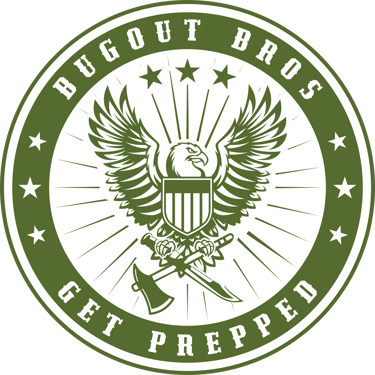Keeping Spirits High
Maintaining Morale During an SHTF Crisis Without Electricity
9/10/20245 min read


Why Morale Matters in an SHTF Scenario
Morale plays a pivotal role in any survival situation, particularly during a "Shit Hits The Fan" (SHTF) crisis without electricity. Maintaining high morale can significantly influence the collective and individual capacity to navigate through adversity. When morale is high, decision-making processes improve, community bonds strengthen, and the overall chances of survival increase. Conversely, low morale can lead to decreased motivation, heightened conflict, and deteriorating mental health, which can be detrimental to both individuals and groups. A green beret once told me he absolutely refused to go into a hot zone with anybody that said "I hope we don't die" or anything of the like. Why? Survival is all about maintaining morale and a positive mindset.
Good morale fosters a positive mindset, which is essential in overcoming the psychological challenges posed by an SHTF scenario. For instance, during World War II, the resilience of Londoners during the Blitz was bolstered by high morale. Despite constant bombings, the community spirit and resolve of the people helped them to endure, make rational decisions under pressure, and support each other, thereby enhancing their survival prospects.
On the other hand, low morale can, and most certainly WILL exacerbate an already dire situation. For example, in the aftermath of Hurricane Katrina, many individuals in New Orleans experienced a severe drop in morale, leading to increased instances of conflict, looting, and mental health issues. The lack of unity and motivation among the affected population hindered recovery efforts and prolonged the crisis.
The psychological impact of maintaining high morale cannot be overstated. A positive mindset helps individuals to remain hopeful, resilient, and resourceful. It can mitigate the stress and anxiety that accompany a prolonged crisis, thereby preserving mental health. Fictional scenarios, such as those depicted in survival literature, often illustrate characters who thrive due to their unwavering determination and positive outlook, despite overwhelming odds.
In an SHTF scenario without electricity, fostering morale becomes even more critical. Activities that promote social interaction, creativity, and physical exercise can help maintain a positive atmosphere. Encouraging open communication, setting achievable goals, and celebrating small victories can also contribute to sustained high morale, ultimately making the difference between survival and succumbing to the crisis.
Non-Electrical Entertainment Ideas to Boost Spirits
In the midst of an SHTF crisis without electricity, maintaining morale is crucial for overall well-being. Engaging in non-electrical entertainment can significantly uplift spirits and foster a sense of community. Traditional games are an excellent starting point. Card games and board games, for instance, can be both stimulating and enjoyable. Games like poker, bridge, chess, and Scrabble can engage the mind and provide a much-needed distraction.
Charades and other acting games can also be highly entertaining, as well as a fun way to train the family/survival pod the in the skills of silent communication. These games require no equipment and can involve everyone, making them perfect for group settings. Additionally, storytelling and reading aloud can serve as excellent activities. Sharing personal anecdotes, folk tales, or reading from a book can create a cozy and enriching environment. These activities encourage listening and communication, fostering a sense of togetherness.
Creating skits or plays can also be a source of amusement and creativity. This activity not only entertains but also allows individuals to express themselves, boosting morale. Physical activities are equally important for mental health and physical fitness. Group exercises, such as yoga or calisthenics, can be organized easily. Sports like soccer, basketball, or even simple games like tag can also provide much-needed physical exertion and team spirit.
Scavenger hunts can be particularly engaging, combining physical activity with problem-solving skills. Everyday items can be used creatively to invent new games or activities. For instance, stones or sticks can be used for games like hopscotch or tic-tac-toe, and household items can be repurposed for makeshift bowling or ring toss. Fun for all ages!
Involving everyone in the community in these activities is crucial. It enhances the sense of togetherness and shared purpose, which is vital during a crisis. By organizing and participating in various non-electrical entertainment options, communities can maintain high spirits and navigate the challenges of an SHTF crisis more effectively.
DIY Crafts and Hobbies to Keep Hands and Minds Busy
In the midst of an SHTF crisis, maintaining morale is crucial. Engaging in DIY crafts and hobbies can provide a much-needed distraction, fostering a sense of accomplishment and normalcy. These activities not only soothe the mind but also yield practical benefits, such as creating useful items or gifts.
Knitting and crocheting are excellent options that require minimal materials: yarn, needles, or hooks. Beginners can start with simple projects like scarves or dishcloths, gradually advancing to more complex patterns. These crafts are not only productive but also meditative, offering a therapeutic rhythm that can calm the mind. Crocheting and knitting is also a great way to replace that lost watch cap, sweater, or socks. Let's face it, staying warm in a cold climate helps maintain morale.
A cozy knit cap & scarf. Who needs expensive brands?
Woodworking is another fulfilling hobby that can be undertaken without electricity. Basic tools like saws, hammers, and chisels are all that's needed. Simple projects such as birdhouses, picture frames, or small furniture pieces can keep hands busy and minds focused. The tactile nature of woodworking, combined with the satisfaction of creating something tangible, can significantly boost morale. And, these are great ways to train in skills that can be used in a longer shtf scenario. How many folks can use a circular saw? Can those folks also use a handsaw? I promise, as a former general contractor, it isn't as easy as one thinks. The point is these morale building activities can also be useful training scenarios.
For those who prefer a more artistic outlet, drawing and sketching can be incredibly soothing. All that is required is paper and pencils. Start with simple sketches and gradually progress to more detailed drawings. This hobby not only enhances creativity but also provides a visual diary of experiences and emotions during the crisis. And, again, this is a skillset that can be used for more utilitarian purposes. Sketching garden plans, building plans, cache locations, and more. You get the idea.
Getting started with these crafts is straightforward. For knitting and crocheting, basic tutorials and patterns can be found in books or printed guides. Woodworking projects often come with step-by-step instructions that are easy to follow. Drawing, on the other hand, requires only practice and imagination.
Beyond the practical and therapeutic benefits, engaging in these crafts and hobbies can help maintain a sense of routine and normalcy. Sharing creations with the community, whether through small gatherings or by displaying finished projects, can foster a sense of pride and connection, further boosting morale. By keeping hands and minds busy, we can navigate the challenges of an SHTF crisis with resilience and creativity.
Thanks for Reading! Get Prepped!


